Tatiana Tairova-Yakovleva: "In my opinion, Russian historians did not play any active role in forming an imperial paradigm"
During our conversation with the Russian historian Tatiana Tairova-Yakovleva, we discussed the following questions: Did Russian historians take part in forming the ideologemes of the Putin regime? What position did they adopt after 24 February 2022? Do full-fledged historical studies exist in Russia today? The interview also focuses on the historian's professional activities, her experience of collaborating with Ukrainian colleagues, current research, and plans for the future.
"Thanks to my paper, a monument to Bohun was erected near Novhorod-Siversky."
Dr. Tairova-Yakovleva, could you give us a more detailed description of your experience of collaborating with Ukraine? How did you manage to establish professional collaboration with your Ukrainian colleagues? What joint projects did you carry out?
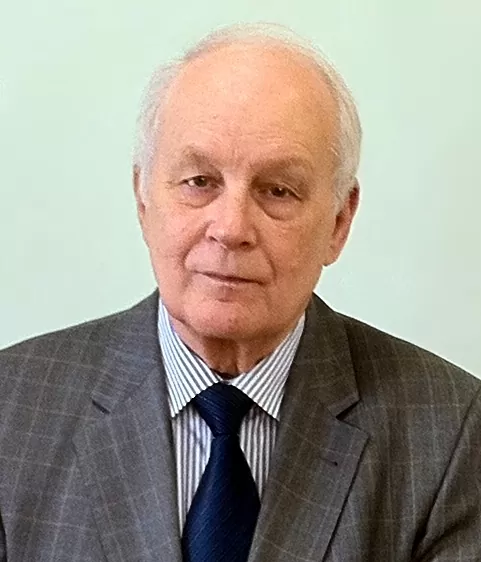
I began collaborating with my Ukrainian colleagues back in Soviet times when I was a student at Leningrad State University, which already had a long history of partnership with Ukraine. In the past, the activities of this university were connected with the names of such distinguished Ukrainian historians as Mykola Kostomarov and Oleksander Hrushevsky. During the Thaw, that is, in the late 1950s–early 1960s, the History Faculty of Leningrad State University was headed by Vladimir Mavrodin, who was born in Kursk, near the Ukrainian border. He was always interested in the history of Ukraine and did much to ensure that Ukrainian studies were offered at Leningrad State University and that the history of Ukraine was taught. During this period, there was close cooperation between Leningrad-based historians and Ukrainian historians. For example, Mykhailo Marchenko defended his dissertation in Leningrad. In the late 1960s, when Yury Margolis, Evdokiia Kosachevskaia, and other historians began to be subjected to repressions in Leningrad, Ukrainians supported them in every possible way and helped them get published in Ukraїns′kyi istorychnyi zhurnal (Ukrainian Historical Journal) and elsewhere. The reverse was also true. In 1972, when repressions began in Kyiv, the Leningraders supported the Ukrainians. For example, Olena Apanovych published her articles in Leningrad, and Fedir Shevchenko often traveled to Leningrad.
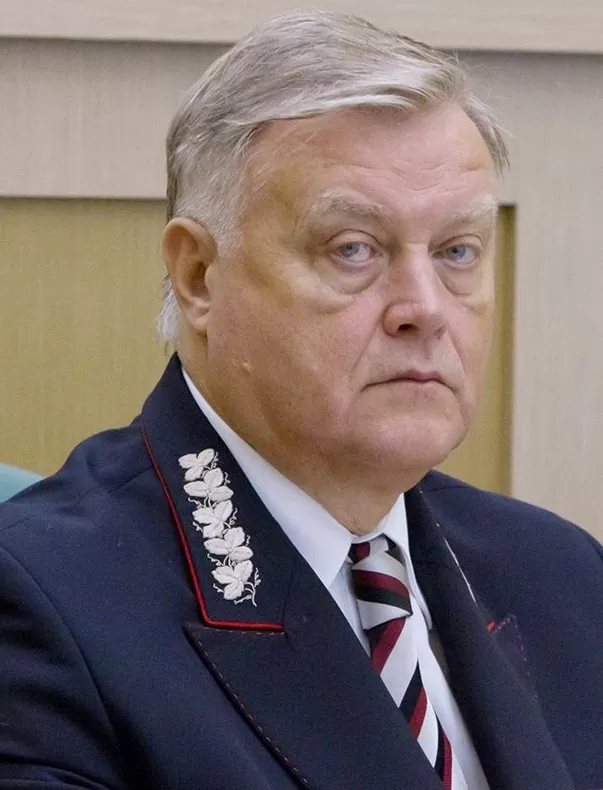
As a student in the second half of the 1980s, my professors helped me establish contact with Ukrainian colleagues. As a second-year student, I first traveled to Dnipropetrovsk (today: Dnipro) and met Mykola Kovalsky, Yurii Mytsyk, and later — Viktor Brekhunenko and Serhii Plokhy. We have been communicating, corresponding, and helping each other out since then. Later, in 1988, if I am not mistaken, when I was still a student, I attended a conference on the study of sources organized by Pavlo Sokhan in Kyiv. That was when I met Fedir Shevchenko, Yaroslav Dashkevych, and many other prominent Ukrainian historians. In 1989, I attended a conference in Novhorod-Siversky, where I gave a paper on how Ivan Bohun died. Thanks to this paper, a monument to Bohun was erected near Novhorod-Siversky. In other words, already in those days, I had very close ties with archaeologists from the Chernihiv region. In 1992, I was getting ready to defend my dissertation for the degree of Candidate of Sciences in Leningrad and ran into many problems. My colleagues in Ukraine helped me, and I defended my dissertation at the Institute of the History of Ukraine of the National Academy of Sciences of Ukraine. I have many acquaintances, colleagues, and friends in various cities of Ukraine to this day.
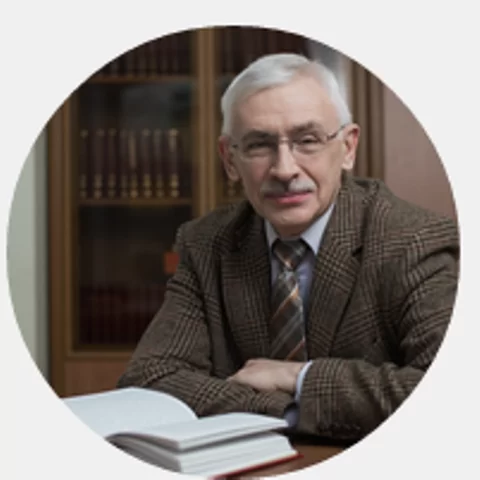
In 2004, I co-founded the Center for the Study of the History of Ukraine at Saint Petersburg State University. Remarkable inter-institutional cooperation with our Ukrainian colleagues began at this point. We maintained links with Kyiv-Mohyla Academy in student and graduate student exchanges. Ukrainian students came to Saint Petersburg, and my student went to Kyiv. In addition, we carried out a number of joint publishing projects. I published the Baturyn archive and inventories of the archival funds kept in Moscow and Saint Petersburg. Our last collaborative publishing project was in 2020. In partnership with the Institute of the History of Ukraine, we published The Chronicle of Samiilo Velychko. Simply put, we cooperated closely with our Ukrainian colleagues and had many joint projects and plans for the future.
"After 2010, a tendency to present most uprisings against the state in a bad light was noted in the interpretation of the past."
What role have Russian historians played in the country's political life? We know that in the 1990s and 2000s, the Russian regime evolved from attempts to build democracy to consolidated authoritarianism with ever-increasing imperial ambitions. What role did historians play in these processes? Did they make any attempts to take part in constructing a new paradigm (or paradigms) of Russia's imperial identity?
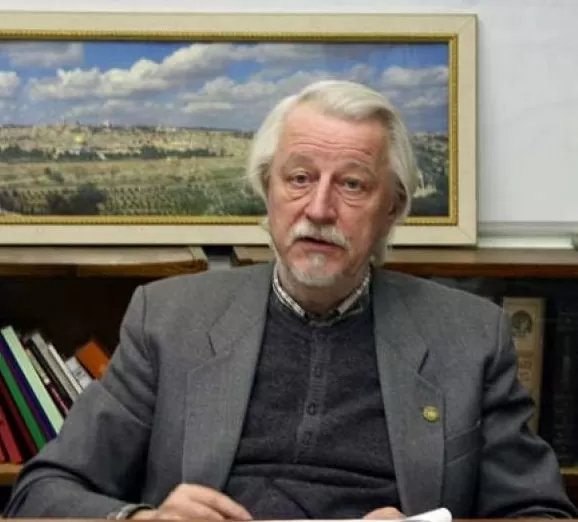
In my opinion, Russian historians did not play any active role in forming some kind of imperial paradigm after the 1990s. When the Soviet Union collapsed, departments teaching the history of the Communist Party were disbanded, and many historians who had worked there joined newly created departments of Russian history. In the past, these were departments of the history of the USSR or faculties covering the period up to the twentieth century. I am talking about a generation of historians who are much older than me. They went to work in these newly created faculties. These people were writing new textbooks on the history of Russia and influenced historical education in general. Their textbooks blended the Soviet and imperial paradigms of the history of Russia. The latter included ideologemes that had been formulated back in the nineteenth century. I've always wondered how you can combine such contradictory things. Take the history of the Church, for example. During the Soviet period, it was persecuted and ruined, but in imperial times it was an extraordinarily influential institution that guaranteed the regime's legitimacy. It was precisely at the junction of such bizarre combinations of contradictions that school and university textbooks on the history of Russia were being written.
After 2010, a tendency to present most uprisings against the state in a bad light was noted in the interpretation of the past. Examples include the Decembrist movement or the Polish uprisings in the nineteenth century. During the Soviet period, such episodes were treated very seriously and interpreted as manifestations of a national liberation or social/class struggle. After 2010, negative assessments of any rebellions against the state gained popularity. The first attempt to integrate the imperial vision into the educational process and the public understanding of history was made in 2012 when the so-called anniversary of Russian statehood was celebrated. This took place in the city of Novgorod. I was present at these festivities and was surprised to see no historians among the main speakers. The main speaker was Vladimir Yakunin, the president of Russian Railways. That was the first time I heard the word skrepy ["bindings," "cement," a term denoting the spiritual foundations that unite the society of modern Russia. — Transl.] This was the first significant attempt to create an imperial vision of the history of Russia, which began to be purposefully imposed on society. Historians had practically no impact on this process. For the most part, it has taken on the characteristics of a political issue.
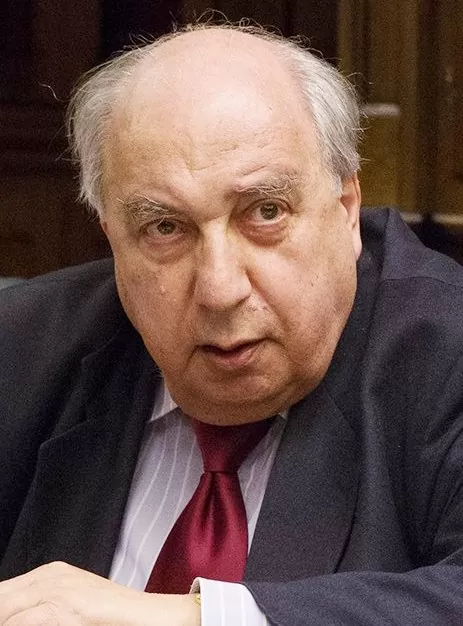
Was there some milestone moment when the Russian Academy began to lean toward supporting the regime, and historians who disagreed began to be marginalized and ultimately fell silent?
In the Academy of Sciences, a few institutions, such as the Institute of Russian History, were always distinguished by a higher degree of conservatism. Initially, it was headed by Academician Andrey Sakharov. This institution was noted for its considerable conservatism back when independent Russia came into being. Around 2005 or 2006, quite a few well-known historians (Danilevsky, Nazarov; a total of more than ten people) left this structure and went to work at the Institute of World History in Moscow, regarded as a very liberal organization at the time and headed by Academician Chubarian. He was the first to suggest that I write an article to put forward a new view of Ivan Mazepa.
Before 2022, there was a fairly liberal atmosphere in the majority of academic institutions. Of course, palpable changes took place after 24 February 2022. Until then, the Institute of World History, in particular, organized such events as inter-ethnic commissions of historians. I am talking about the collaboration of Russian historians with their colleagues from Germany, Poland, Ukraine, Lithuania, and other countries. I, for example, was part of a commission of historians from Russia and Ukraine. Among our Ukrainian colleagues were such distinguished specialists as Hennadii Boriak, Vladyslav Verstiuk, Stanislav Kulchytsky, Oleksandr Motsia, and others. We used our meetings as a good opportunity to communicate and achieve something interesting. In other words, in the past, there were excellent possibilities in Russia for Ukrainian and Russian historians to collaborate. The attitude to academic history in Russia was quite liberal.
But certain historians sought to get in sync with the state's new geopolitical projects, for example, the members of the Valdai Discussion Club. Could you comment on their role? Did many historians support those initiatives? How could this have influenced the state and character of historical studies in Russia in general?
There were always very few historians like that. There were some institutions, like the Institute of CIS Countries. This was a thoroughly political institution that usually worked to order. But most historians did not support the work of such organizations. Interestingly enough, the European University, which operates out of Saint Petersburg, was viewed as an extraordinarily liberal, pro-European organization. After the war began, its associates did not issue any public statements or assessments. On the contrary, Alexei Miller is now constantly getting published in the journal Russia in Global Affairs, where he spouts his ideas about the origins of Ukrainian identity without making any comments on the origins of Russian identity. This position corresponds precisely to what is happening in Russia now, and the goal here is to continue to receive state financing.
"I would say that there is no real, academic study of history in Russia today"
In your estimation, how many Russian historians have condemned the war? How did they do this? Are there any top historians among them?
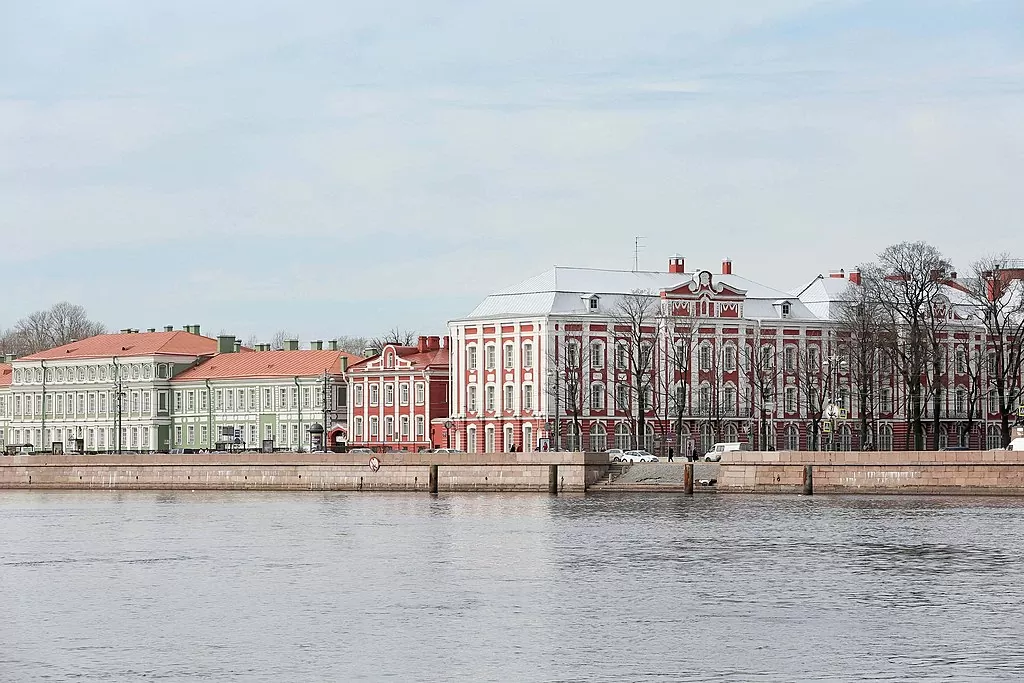
In the early days of the war, a letter was signed in Russia by many well-known historians, including the directors of several academic institutes. This happened before the government began instituting legal proceedings against people who expressed an anti-war position. Several dozen historians, including the top ones, signed that letter. These were not individual statements, like my own, for example, but at least they expressed their position. When I issued my statement, I received many letters from colleagues. My students also frequently expressed their support to me.
Right now, there are three provisional groups of Russian historians. The first is a huge group of scholars who have left Russia; for example, nearly 400 professors left the Higher School of Economics in Moscow and Saint Petersburg, which had history faculties. This is truly a large number; I am talking about the best scholars. Among them were quite a few historians. They went to various European countries where they are teaching now, holding scholarships, etc. They left because of their stance. The second huge group consists of scholars who have stayed behind and observe a regime of silence out of fear. These people often have some special circumstances, such as elderly parents, family ties, and other personal reasons that prevent them from leaving the country. Many of them are helping me with my research work. The third group is comprised of those who support the current regime. My colleagues and I often discussed the situation that has come about, and some of them truly held pro-regime views. This was a surprise to us because we had always considered them to be liberal scholars. Why do Russian historians support the regime? There may be various reasons. Some do this for material gain. An insignificant number of historians support the Russian government out of conviction. There are indeed very few of them, perhaps five or six that I know. Their views were well-known before the war, and they are unlikely to have changed.
Do Russian historians feel responsible for this war?
Most do not feel any responsibility. Among those who have left and with whom I am in contact, some definitely feel a sense of responsibility. There were few opportunities to influence society and public opinion in our country. That said, something more should certainly have been done. At present, we have launched the online project Terra Ukraina, where we deliver lectures on the history of Ukraine in the Russian language to influence the Russian-speaking public. Our videos have been getting tens of thousands of views in the last while. Of course, these are not millions, but we are trying to achieve some impact. In 2015, we published a book in Russia on the history of Ukraine. It was a difficult task to undertake; a lot of obstacles cropped up. But we did it and even held a few big book launches. Some five to ten thousand copies of the book were printed. On the one hand, this is not a small quantity but, on the other, of course, it's not nearly enough to have an impact on a population of 150 million.
What were the obstacles you encountered in Russia while trying to publish that book on the history of Ukraine?
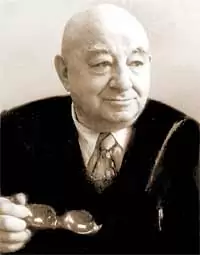
Many publishing houses refused to print the book, and we had to beg, persuade, and obtain support from the Academy of Sciences, etc. Not so long ago, when I was publishing my book about the history of the Koliivshchyna rebellion [a major haidamaka rebellion that broke out in Right-Bank Ukraine in May 1768 against social and national-religious oppression by the Polish administration and nobility. — Transl.], I ran into many problems because even such liberal organizations as Irina Prokhorova's publishing house refused to take it on. These obstacles were encountered in 2019–2020.
How are the historians who created the image of Ukraine as a failed project conducting themselves? Are they keeping quiet or taking part in discussions?
Those who support the official position are very active. Many articles and books have appeared, along with the representatives of the so-called self-proclaimed "republics" in eastern Ukraine. They reveal a very interesting attitude toward historical events, which has no relation to academic study. This is a political matter to order. I would say that there is no real, academic study of history in Russia today. Historians are either keeping quiet or publishing things that have nothing whatsoever to do with academic studies.
"Now that I am free of most of my work duties, I have decided to write what I have always dreamed about — the biography of Ivan Bohun"
In your opinion, what awaits Russian historiography after the war? Is a revision of the Russian historical narrative possible, and who might initiate this process? In a recent interview, Marina Mogilner mentioned an attempt by the journal Ab Imperio to initiate a similar change of paradigm. How do you assess such proposals?
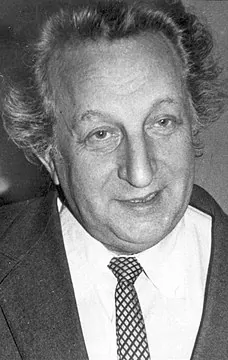
The entire history of Russia needs to be re-examined. I am not even sure that it should be called the history of Russia. We have to treat all this in a completely different way. I don't know when these processes will take place, perhaps in a renewed state. I suggested that my colleagues launch this kind of process on the basis of ASEEES in the U.S. I hope that we will meet and discuss this in the fall. Some support my idea. I have communicated with the members of Ab Imperio, but so far, we have not found any common ground. It is a very complex question because we need to reinterpret everything, examine Muscovite history, Novgorod history, and the history of the diverse territories that are now part of the Russian Federation. We have to find new paradigms because everyone has been using the one developed back in the nineteenth century or during the Soviet period. We need a different view of the past, and that's a huge challenge.
Did the war change your views of the history of Ukraine and the history of Russia, and the study of history as such? If so, how?
I would not say that the war fundamentally changed my views of history. But now that I am reviewing my works, I am surprised to see that the things I wrote earlier have become relevant once again. In the past, I wrote about the conflicts in the seventeenth century, and now I am looking at this from the standpoint of what is happening today. Of course, I would like to change certain accents and strengthen some things. Right now, I am writing a new book — about Ivan Bohun. This is the Ruin, a period marked by complex relations between Ukraine, Poland, Russia (the Muscovite state), and other European countries. And when I am analyzing those events from the standpoint of the war in the twenty-first century, of course, this cannot fail to influence my research position.
Your book about Ivan Bohun, what is it about?
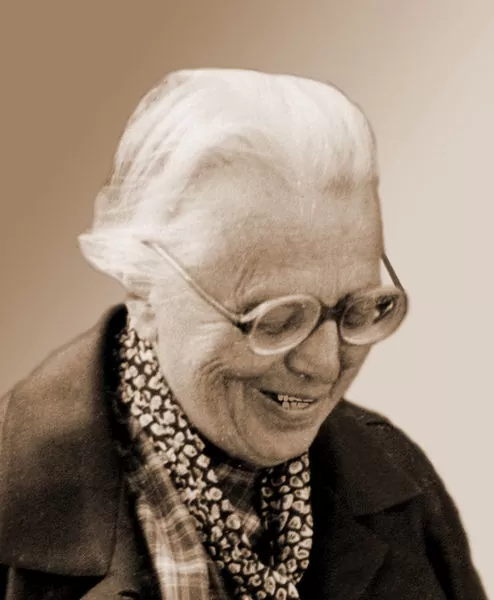
I became interested in the history of Ukraine when I was reading Mykola Kostomarov's work on Bohdan Khmelnytsky. At the time, I was fourteen or fifteen years old, and the romantic hero Ivan Bohun had a big impact on me. For almost forty years, I was collecting an immense quantity of materials on Bohun's life. Whenever I found something about him in archives, I always took notes. Now that I am free of most of my work duties (the university and the Academy of Sciences), I have decided to write what I have always dreamed about — a biography of Ivan Bohun. Since he was the finest commander in the history of Ukraine, this topic is especially relevant today. This massive study is based on documents and materials from many archives in Poland, Ukraine, and Russia. Before the war, I managed to make quite a few digital copies of documents from archives in Moscow and Saint Petersburg.
A vast volume consisting of twenty chapters, most of which have already been written, is being prepared. It is the first academic biography of Ivan Bohun. We are collaborating with the Clio Publishing House in Kyiv, which is translating my texts into Ukrainian. A whole team is working on the publication, and we are preparing wonderful illustrations. This is an extraordinarily interesting project we plan to complete by the autumn of 2023. I hope that the book will prove useful to anyone interested in the history of the Cossack period and not just the Cossack period because this is not simply a biography. Bohun was an influential political figure over twenty critical years in the history of Ukraine. When we talk about him, we have to consider not just military events but brilliant, European-level victories, contacts with Sweden, the Ottoman Empire, and other countries, relations with the Muscovite state, and the like. I found a large number of new materials on Bohun's life. There will be quite a few sensational revelations in the book, which will raise issues that no one has ever written about.
Since you are a Russian historian "in exile," what undertakings are you planning now?
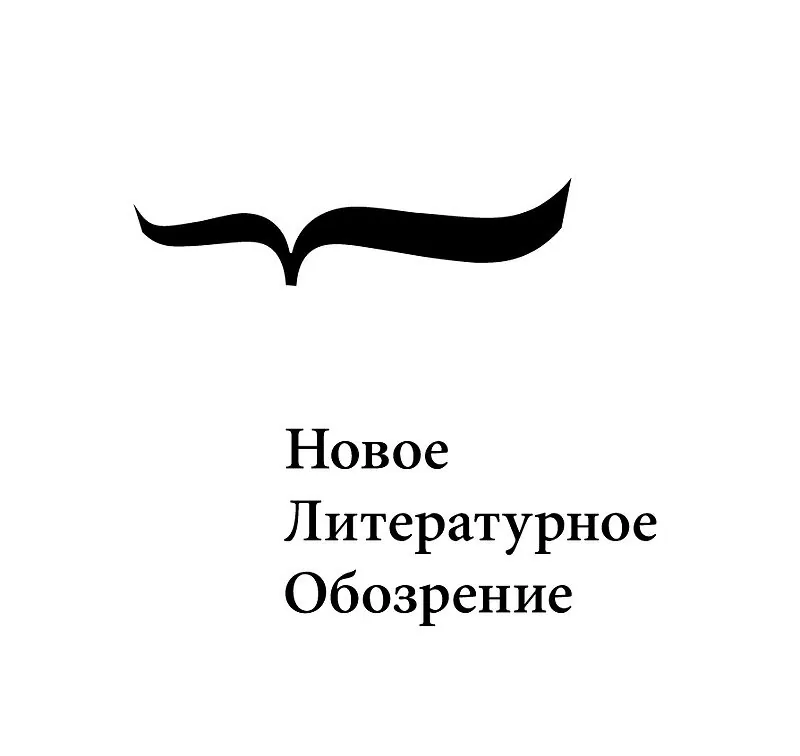
I always considered that my main goal was, first of all, to make use of sources held in Moscow and Saint Petersburg because not everyone in Ukraine has the possibility to research them. There are many, many materials there, even more than in Poland. During the war, I published a book about historical sources from the times of Pylyp Orlyk that are held in Moscow. I did this with the aid of digital copies of archival documents that are in my private archive. Another goal has been the academic treatment of Ukrainian history; this is a very complex goal. Even in Ukraine, there is no single view of the past. I am very grateful to Anton Drobovych, who wrote to me saying that he was waiting impatiently for my book on Bohun and hoping for an academic view. I am working scrupulously to ensure that it will be. Writing this book was not an attempt to do something nice for someone. It is about very complicated times and difficult events. Naturally, some issues in the book will not be pleasant for Poles or Ukrainians, not to mention Russians. The main thing is to understand those events so that history will teach us something. I would very much like for the book to help Ukrainians understand their past and build a successful future.
In other words, you reject the Hegelian thesis that we learn nothing from history?
I think that history teaches those who wish to learn, read history books, and want to know about the past — these people learn something.
Interviewed by Yaroslav Hrytsak, Oksana Ovsiiuk, and Petro Dolhanov.
Open-source images are used in this publication.
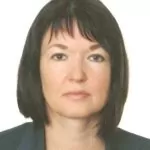
Tatiana Tairova-Yakovleva, Doctor of Historical Sciences, professor, and independent researcher, studies the history of Early Modern Ukraine, especially the Cossack period. She is the author of fourteen monographs and approximately 140 articles on the history of the Early Modern period, especially the history of Ukraine during this era. In December 2020, McGill-Queen's University Press published her monograph Ivan Mazepa and the Russian Empire.
Originally appeared in Ukrainian @Ukraina Moderna
This article was published as part of a project supported by the Canadian non-profit charitable organization Ukrainian Jewish Encounter.
Translated from the Ukrainian by Marta D. Olynyk
NOTE: UJE does not necessarily endorse opinions expressed in articles and other materials published on its website and social media pages. Such materials are posted to promote discussion related to Ukrainian-Jewish interactions and relations. The website and social media pages will be places of information that reflect varied viewpoints.




















